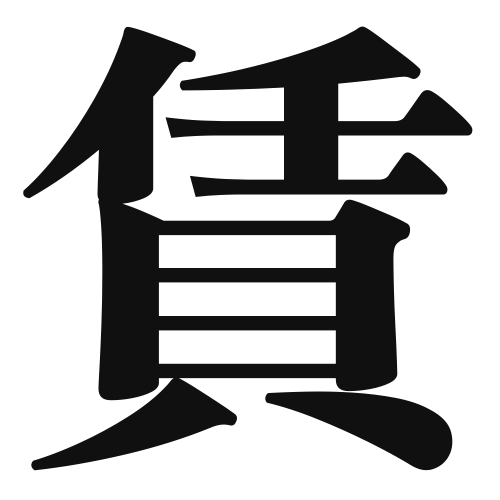1. Overview of Meaning
The kanji “賃” (chin) primarily means “rent” or “fee.” It refers to the payment made for the use of something, such as property or services.
2. Formation and Radical
Formation of the Kanji: The kanji “賃” is a phonetic compound (形声文字) that combines the elements of “貝” (shell, which often represents money) and “林” (forest), suggesting a connection to wealth or resources.
Radical: The radical of “賃” is “貝,” which is commonly associated with money or valuables.
3. Examples of Usage
Common Words and Phrases:
- 賃貸 (ちんたい, chintai) – rental
- 賃金 (ちんぎん, chingin) – wages
Example Sentences in Daily Conversation:
- このアパートの賃は高いです。 (このアパートのちんはたかいです。) – The rent for this apartment is high.
- 彼は賃金が上がったと言っていました。 (かれはちんぎんがあがったといっていました。) – He said his wages have increased.
4. Synonyms and Antonyms
Similar Kanji:
- 料金 (りょうきん, ryokin) – fee (for services, not necessarily rent)
- 費用 (ひよう, hiyou) – cost (general expenses)
Antonyms:
- 無償 (むしょう, mushou) – free of charge (no payment required)
5. Cultural and Historical Background
Relation to Japanese Culture: The concept of “賃” is deeply rooted in Japanese society, where renting and leasing properties is common due to limited space in urban areas.
Proverbs and Idioms:
- 「安物買いの銭失い」 (やすものがいのぜにうしない) – “Buying cheap goods leads to losing money,” which emphasizes the importance of value over cost.
